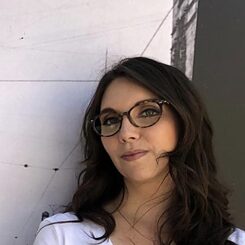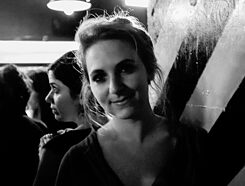The conversation series
Counter-Memories investigates a number of international monuments and places of remembrance whose symbolic significance often reveals a great deal about our relationship to history. The Goethe-Institutes in North America, the Goethe Pop Up Kansas City, the Thomas Mann House, and Onassis LA convene artists, activists, and intellectuals for illustrated virtual conversations around historical memory.
Watch the Mexiko City episode about the Tlatelolco district here.
About the Place of Remembrance
In this episode, the art historian Veka Duncan and the translator and author Elianna Kan discuss the Tlatelolco district in Mexico City. After the severe earthquake in 1985, the residents of Tlatelolco erected a sundial on the rubble of the former Nuevo Leon building to commemorate the victims. The history of Mexico City and especially of Tlatelolco resembles a palimpsest: historical events have left their traces, and in turn have been covered over by other events but never completely obliterated. Here, for example, is the archaeological site of the Tlatelolcas, a tribe of the Mexica. Their city was sacked and destroyed by the Spanish conquerors. In recent history Tlatelolco has been, and is still today, an important place for demonstrations and gatherings of social movements, and was particularly shaped by the massacre of students on October 2, 1968. Highlighted against these historical backdrops, community projects and neighborhood initiatives have created places of collective remembrance and commemoration such as community gardens and the sundial. Taking Tlatelolco as its point of departure, the conversation between Veka Duncan and Elianna Kan revolves around collective memory, the appropriation of public space and public remembrance beyond state intervention.
 © privat
Veka Duncan
© privat
Veka Duncan has a degree in art history from the Universidad Iberoamericana and focuses currently on cultural mediation and dissemination. Since 2018, she has hosted, together with Héctor de Mauleón, the television programme
El Foco by
adn 40, which deals with the history of Mexico City. She is a columnist for the cultural supplement of the newspaper
La Razón and the magazine
Este País and writes articles for
Nexos. She has contributed to programmes such as
Espresso Doble by
El Financiero Bloomberg,
Dispara,
Margot,
Dispara by
MVS Radio and
El Mañanero en Aire Libre, moderated by
Brozo. Duncan recently created a YouTube channel on which she produces and hosts the features
The History of Things and
The Foundations of Art. She is the author of the book
Cara o Cruz.
Lazaro Cardenas published by Taurus. She has contributed to more than a dozen books as a researcher, editor and translator, and has been a member of the curatorial teams of diverse exhibitions in Mexico and abroad.
 © Elianna Kan
Elianna Kan
© Elianna Kan
Elianna Kan is a translator, literary agent, writer, and interviewer. She began her publishing career at Picador and as Senior Editor of
The American Reader, where she curated a monthly portfolio of literature in translation. Her commitment to literature and the ways in which it travels across borders has led her to work in Mexico and New York as a literary agent advocating for the translation of Latin American authors abroad. Meanwhile, a persistent obsession with language, memory, cross-cultural communication, and the power of live theater has led her to interview writers and theater-makers from Philip Levine to Alejandro Jodorowsky, from Mary-Louise Parker to Jorie Graham, from Annie Baker to Cecilia Vicuña, on behalf of
The Paris Review,
BOMB Magazine, and
The Believer, and onstage at literary festivals from the Hay Festival to Croatia’s Lit Link. Kan teaches Creative Writing and Literary Translation at Columbia University.
Counter-Memories is a cooperation between the Goethe-Institutes North-America, the Onassis Foundation Los Angeles and the Thomas Mann House in collaboration with the project
Shaping the Past.
Back